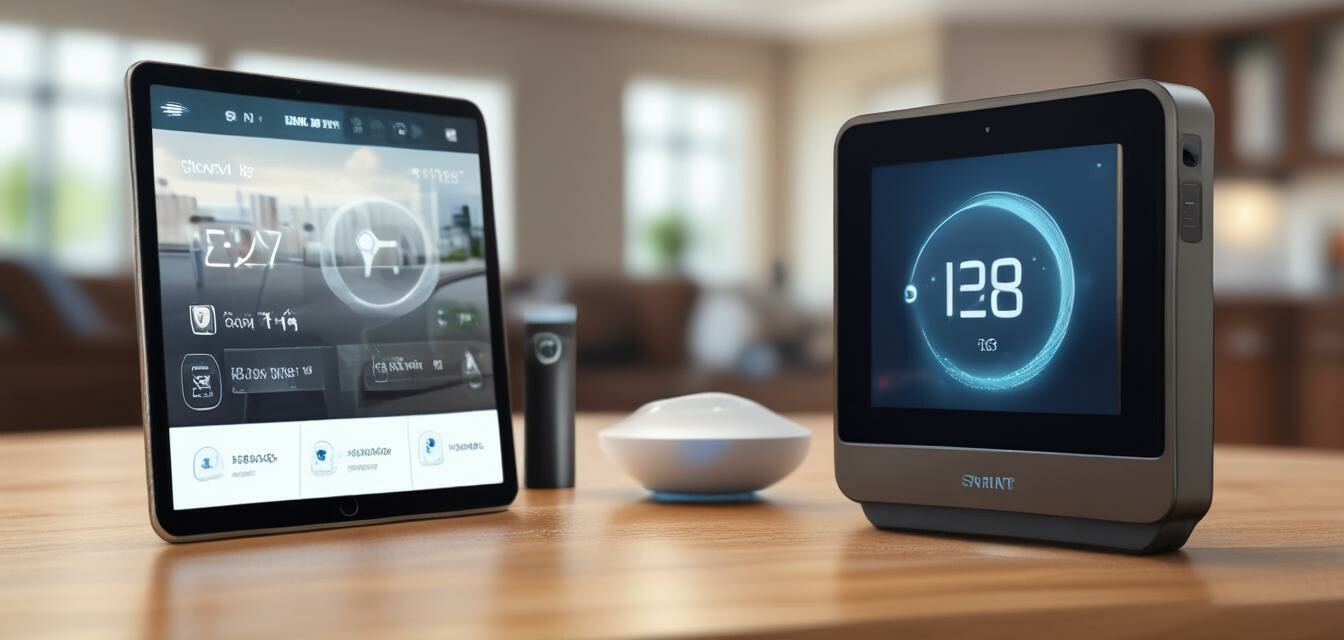
How Smart Home Technology Is Influencing Home Insurance
- Smart home technology enhances security and reduces risk for homeowners.
- Insurers are using data from smart devices to adjust premiums.
- Smart technology can lead to discounts on home insurance policies.
- Emerging trends indicate a shift in underwriting based on smart technology adoption.
In recent years, the growth of smart home technology has transformed the way we live, offering added convenience, increased security, and improved energy efficiency. But its influence isn't just limited to our daily lives; it is also reshaping the home insurance landscape. As homeowners adopt smart devices, insurance companies are taking notice, adjusting their policies, and providing new opportunities for discounts and other benefits.
The rise of smart home technology
Smart home technology encompasses a wide range of devices and systems that connect to the internet, allowing homeowners to control various aspects of their homes remotely. This includes smart security cameras, smart thermostats, smart lighting, and more. The adoption of these technologies is on the rise, changing the dynamic of home safety and risk management.
Benefits of smart home devices
- Enhanced security: Smart security systems, including cameras and alarms, provide homeowners with real-time monitoring and alerts.
- Energy efficiency: Smart thermostats and lighting systems help reduce energy consumption and costs.
- Remote control: Homeowners can manage devices from anywhere via smartphone apps.
Impact on home insurance
The growing integration of smart technology into homes has a significant impact on home insurance. Insurers are becoming increasingly aware of the benefits these devices provide in terms of risk reduction.
1. Adjusting insurance premiums
Insurance companies are starting to utilize data from smart home devices to assess risk more accurately. For instance, if a home is equipped with a smart security system that alerts homeowners of suspicious activity, the risk of theft is reduced. As a result, insurers may lower premiums for these homes.
2. Discounts for smart home technology
Another significant trend is the provision of discounts on home insurance policies for homeowners using smart devices. Insurers recognize that equipped homes are generally less prone to damages or losses, leading to potential savings for both parties.
Emerging trends in home insurance
As the smart home landscape continues to grow, several notable trends are emerging within the home insurance market:
| Trend | Description | Potential Impact |
|---|---|---|
| Data-driven underwriting | Insurance companies are analyzing data from smart home devices for better risk assessment. | More personalized premiums based on actual risks. |
| Smart device requirements | Some insurers offer policies only to homes equipped with specific smart technology. | Encouragement for homeowners to invest in smart systems. |
| Collaboration with tech companies | Insurers collaborate with smart technology manufacturers to offer bundled products. | Simplified purchases and potential package deals for consumers. |
Challenges and considerations
While the trends are promising, there are some challenges and considerations for homeowners and insurers alike:
- Data privacy concerns: The use of smart devices raises questions about data security and how that information is used by insurers.
- Policy complexity: As smart devices become more integrated into home insurance, policies may become more complicated for consumers to understand.
- Technological adoption: Not all homes will have access to smart technology, which could lead to disparities in insurance coverage.
Pros
- Lower insurance premiums for homes with smart devices.
- Increased security and peace of mind for homeowners.
- Potential for bundled services and products.
Cons
- Concerns regarding data privacy and security.
- Complexity in understanding how devices affect premiums.
- Not all homeowners will benefit equally based on technology access.
Conclusion
The influence of smart home technology on home insurance is undeniable. As this technology continues to advance, it brings with it new opportunities and challenges for homeowners and insurers alike. By understanding these trends, homeowners can make informed decisions that not only enhance their living conditions but also provide significant benefits in terms of insurance costs.
To stay ahead in the smart home landscape, keep abreast of the latest news and trends in this dynamic field. Visit our [News and Trends](https://reallysmarthomedevices.com/blog/news-and-trends) section for more insights into how technology is continually shaping industries.


